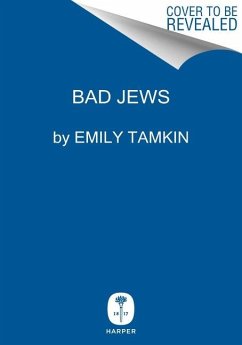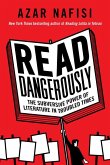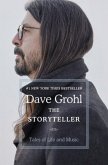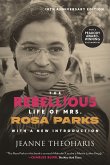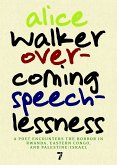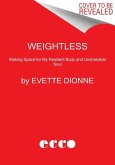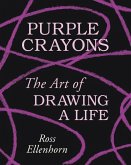A journalist and author of The Influence of Soros examines the history of Jewish people in America and explores their ever-evolving relationship to the nation's culture and identity-and each other.
What does it mean to be a Bad Jew?
Many Jews use the term "Bad Jew" as a weapon against other members of the community or even against themselves. You can be called a Bad Jew if you don't keep kosher; if you only go to temple on Yom Kippur; if you don't attend or send your children to Hebrew school; if you enjoy Christmas music; if your partner isn't Jewish; if you don't call your mother often enough. The list is endless.
In Bad Jews, Emily Tamkin argues that perhaps there is no answer to this timeless question at all. Throughout American history, Jewish identities have evolved and transformed in a variety of ways. The issue of what it means, or doesn't, to be a Good Jew or a Bad Jew is particularly fraught at this moment, American Jews feel and fear antisemitism is on the rise.. There are several million people who identify as American Jews-but that doesn't mean they all identify with one another. American Jewish history is full of discussions and debates and hand wringing over who is Jewish, how to be Jewish, and what it means to be Jewish.
In Bad Jews, Emily Tamkin examines the last 100 years of American Jewish politics, culture, identities, and arguments. Drawing on over 150 interviews, she tracks the evolution of Jewishness throughout American history, and explores many of the evolving and conflicting Jewish positions on assimilation; race; Zionism and Israel; affluence and poverty, philanthropy, finance, politics; and social justice. From this complex and nuanced history, Tamkin pinpoints perhaps the one truth about American Jewish identity: It is always changing.
Hinweis: Dieser Artikel kann nur an eine deutsche Lieferadresse ausgeliefert werden.
What does it mean to be a Bad Jew?
Many Jews use the term "Bad Jew" as a weapon against other members of the community or even against themselves. You can be called a Bad Jew if you don't keep kosher; if you only go to temple on Yom Kippur; if you don't attend or send your children to Hebrew school; if you enjoy Christmas music; if your partner isn't Jewish; if you don't call your mother often enough. The list is endless.
In Bad Jews, Emily Tamkin argues that perhaps there is no answer to this timeless question at all. Throughout American history, Jewish identities have evolved and transformed in a variety of ways. The issue of what it means, or doesn't, to be a Good Jew or a Bad Jew is particularly fraught at this moment, American Jews feel and fear antisemitism is on the rise.. There are several million people who identify as American Jews-but that doesn't mean they all identify with one another. American Jewish history is full of discussions and debates and hand wringing over who is Jewish, how to be Jewish, and what it means to be Jewish.
In Bad Jews, Emily Tamkin examines the last 100 years of American Jewish politics, culture, identities, and arguments. Drawing on over 150 interviews, she tracks the evolution of Jewishness throughout American history, and explores many of the evolving and conflicting Jewish positions on assimilation; race; Zionism and Israel; affluence and poverty, philanthropy, finance, politics; and social justice. From this complex and nuanced history, Tamkin pinpoints perhaps the one truth about American Jewish identity: It is always changing.
Hinweis: Dieser Artikel kann nur an eine deutsche Lieferadresse ausgeliefert werden.
"Journalist Tamkin illuminates in this vibrant study the multifaceted nature of the Jewish experience in America...Heartfelt, nuanced, and empathetic, this revelatory ethnography is a must-read." - Publishers Weekly, starred review
"To take stock of one's own people as a journalist and historian is no simple task, but Emily Tamkin rises to the occasion with aplomb. In Bad Jews, Tamkin has pieced together a vital, sober, and - most importantly - empathic accounting of the American Jewish story. The volume of Tamkin's research was clearly astounding, and it pays off in the form of a book that is both eminently readable and appropriately provocative. Whether you're Jew or Gentile, radical or conservative, kosher or lobster-loving, Bad Jews is sure to enthrall and educate you." - Abe Riesman, author of True Believer
"Anything Emily Tamkin writes will be thoughtful, well-researched, and engaging. Her new book is no exception. It grabs you from page one and every time I put it down, it was with reluctance. This book is so smart, timely, and relevant, that you forget Tamkin is sounding a clarion bell about the very real dangers of our time." - Celeste Headlee, author of Speaking of Race
"With compelling narrative and piercing historical analysis, Emily Tamkin grapples with the big questions of group identity and authenticity and their relationship to inclusion in a diverse nation. She invites readers on a journey of the Jewish experience in the United States and explores the ways culture, intolerance, and perseverance have shaped it. An essential commentary on identity and belonging in America, Tamkin's Bad Jews is necessary reading for a changing country struggling to live its creed." - Theodore Johnson, author of When the Stars Begin to Fall
"Like the host of the world's greatest Passover seder, Emily Tamkin invites everyone in-the idealists, the skeptics, and the dreamers-and gets them talking about all the thorniest issues. With curiosity, chutzpah, and a lot of heart, Bad Jews welcomes us all into the conversation American Jews need to have right now." - Josh Lambert, Sophia Moses Robison Associate Professor of Jewish Studies and English, Wellesley College
"The world may think that Jews are a homogeneous group. They are anything but. Tamkin's compelling narrative illuminates as it entertains, distilling Jewish in-fighting to the bone in the process. An essential read." - Keren McGinity, author of Still Jewish
"Engaging...reflects the author's experience as a skilled journalist and storyteller." - Kirkus
"This book is very wide-ranging, ...always thought-provoking, and it offers many ideas for readers to further explore." - Booklist
"To take stock of one's own people as a journalist and historian is no simple task, but Emily Tamkin rises to the occasion with aplomb. In Bad Jews, Tamkin has pieced together a vital, sober, and - most importantly - empathic accounting of the American Jewish story. The volume of Tamkin's research was clearly astounding, and it pays off in the form of a book that is both eminently readable and appropriately provocative. Whether you're Jew or Gentile, radical or conservative, kosher or lobster-loving, Bad Jews is sure to enthrall and educate you." - Abe Riesman, author of True Believer
"Anything Emily Tamkin writes will be thoughtful, well-researched, and engaging. Her new book is no exception. It grabs you from page one and every time I put it down, it was with reluctance. This book is so smart, timely, and relevant, that you forget Tamkin is sounding a clarion bell about the very real dangers of our time." - Celeste Headlee, author of Speaking of Race
"With compelling narrative and piercing historical analysis, Emily Tamkin grapples with the big questions of group identity and authenticity and their relationship to inclusion in a diverse nation. She invites readers on a journey of the Jewish experience in the United States and explores the ways culture, intolerance, and perseverance have shaped it. An essential commentary on identity and belonging in America, Tamkin's Bad Jews is necessary reading for a changing country struggling to live its creed." - Theodore Johnson, author of When the Stars Begin to Fall
"Like the host of the world's greatest Passover seder, Emily Tamkin invites everyone in-the idealists, the skeptics, and the dreamers-and gets them talking about all the thorniest issues. With curiosity, chutzpah, and a lot of heart, Bad Jews welcomes us all into the conversation American Jews need to have right now." - Josh Lambert, Sophia Moses Robison Associate Professor of Jewish Studies and English, Wellesley College
"The world may think that Jews are a homogeneous group. They are anything but. Tamkin's compelling narrative illuminates as it entertains, distilling Jewish in-fighting to the bone in the process. An essential read." - Keren McGinity, author of Still Jewish
"Engaging...reflects the author's experience as a skilled journalist and storyteller." - Kirkus
"This book is very wide-ranging, ...always thought-provoking, and it offers many ideas for readers to further explore." - Booklist

